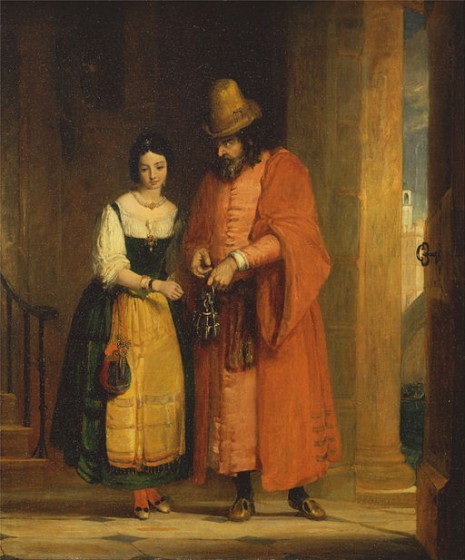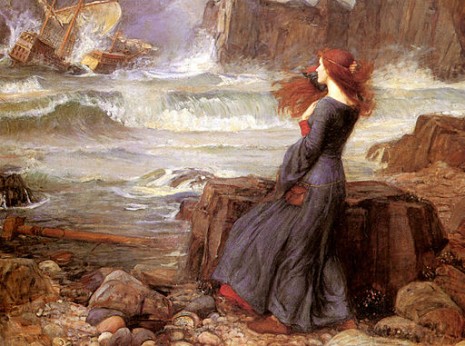As any ninth grader who’s slogged through Julius Caesar can tell you, Shakespeare borrowed some of his plots from history. But at least two of Shakespeare’s plays were probably inspired by current events from his own day.
 He wrote The Merchant of Venice in 1597. If you haven’t read or seen the play, one of the central characters is a man named Shylock, famously Jewish. He’s a controversial character, and Shakespearean scholars are divided about whether he’s a good guy or a bad guy—it’s considered a “problem play” because it’s unclear whether the play endorses or criticizes anti-Semitic proclivities. But for sure, Shakespeare wrote some of his most beautiful speeches for Shylock’s character—who is deeply flawed but deeply human.
He wrote The Merchant of Venice in 1597. If you haven’t read or seen the play, one of the central characters is a man named Shylock, famously Jewish. He’s a controversial character, and Shakespearean scholars are divided about whether he’s a good guy or a bad guy—it’s considered a “problem play” because it’s unclear whether the play endorses or criticizes anti-Semitic proclivities. But for sure, Shakespeare wrote some of his most beautiful speeches for Shylock’s character—who is deeply flawed but deeply human.
Shylock may well have been based on a real person, a contemporary of Shakespeare’s. That person was Rodrigo Lopez (1525 – 1594), a Portuguese Jew who converted to Christianity during the Portuguese Inquisition (a horrible period of history, which I may eventually blog about when I have the stomach for it). He became Personal Physician to the Stars, including Robert Dudley (Queen Elizabeth’s “favorite”) and, eventually, to the queen herself.
Lopez grew prosperous and famous, but in 1593 was accused of conspiring to poison the queen. He maintained his innocence to the end, and the queen herself delayed signing his death warrant for many months, but in June of 1594 he was hanged, drawn, and quartered. (If you don’t know what that is, be grateful.) Shakespeare would almost definitely have known about Lopez. Three years after Lopez’s execution, he wrote The Merchant of Venice.
Meanwhile, another current event may have given Shakespeare the idea for another play, The Tempest (1611).
 In 1607, he’d already written three of his great tragedies—Hamlet, Macbeth, and Othello—when the Jamestown colony was established in the New World. In June, 1609, a fleet of supply ships sailed from England to deliver desperately-needed provisions (and an influx of new settlers) to the starving Jamestown colonists. The fleet was hit with a monstrous hurricane, and the flagship, Sea Venture, was wrecked near Bermuda. The castaways were stranded for months on a remote island, but they found food there, repaired their ship, and made it to Jamestown several months later.
In 1607, he’d already written three of his great tragedies—Hamlet, Macbeth, and Othello—when the Jamestown colony was established in the New World. In June, 1609, a fleet of supply ships sailed from England to deliver desperately-needed provisions (and an influx of new settlers) to the starving Jamestown colonists. The fleet was hit with a monstrous hurricane, and the flagship, Sea Venture, was wrecked near Bermuda. The castaways were stranded for months on a remote island, but they found food there, repaired their ship, and made it to Jamestown several months later.
Shakespeare wrote The Tempest two years after this well-publicized event—about a group of castaways on a remote island. Coincidence? I think not.